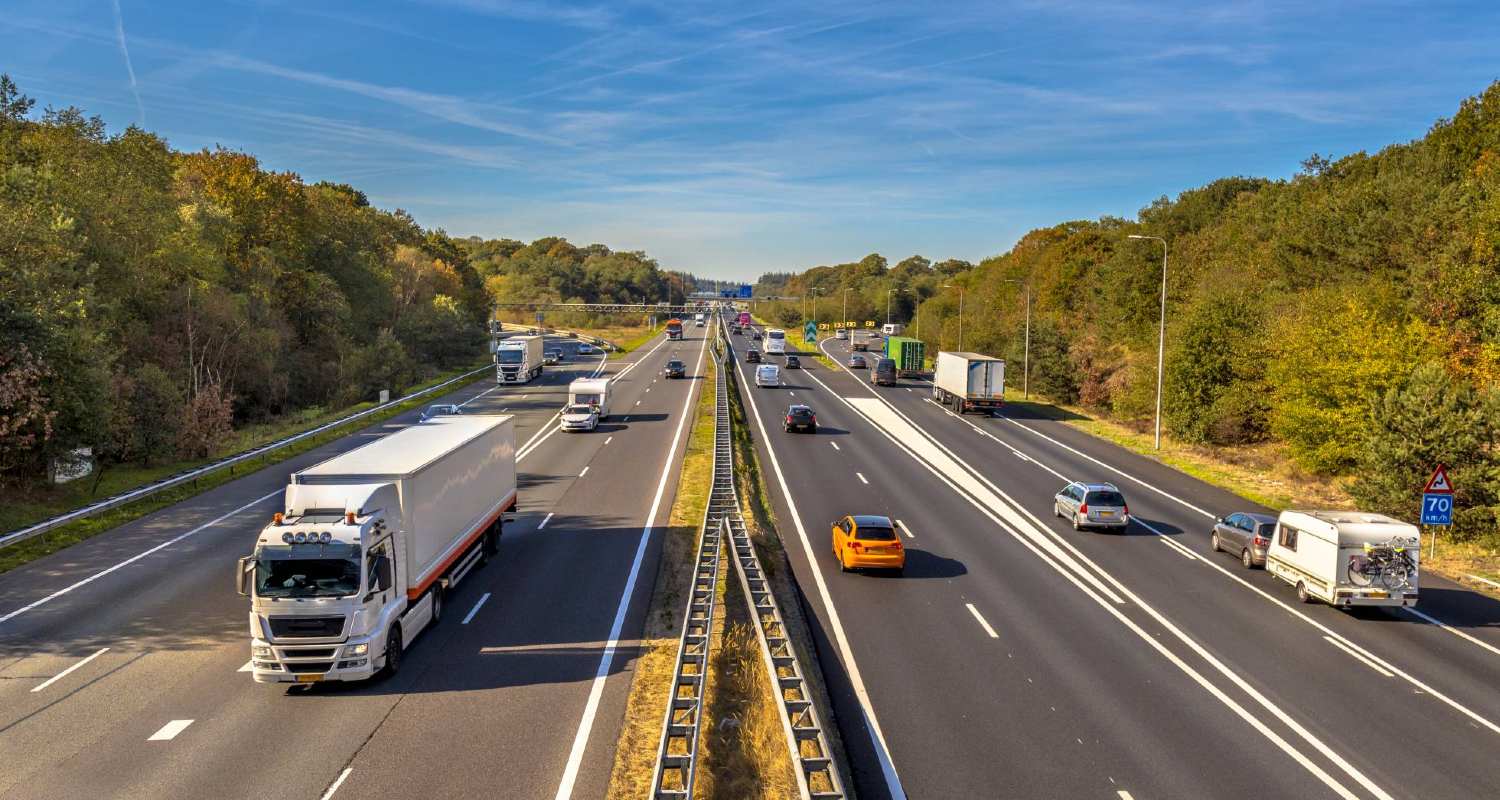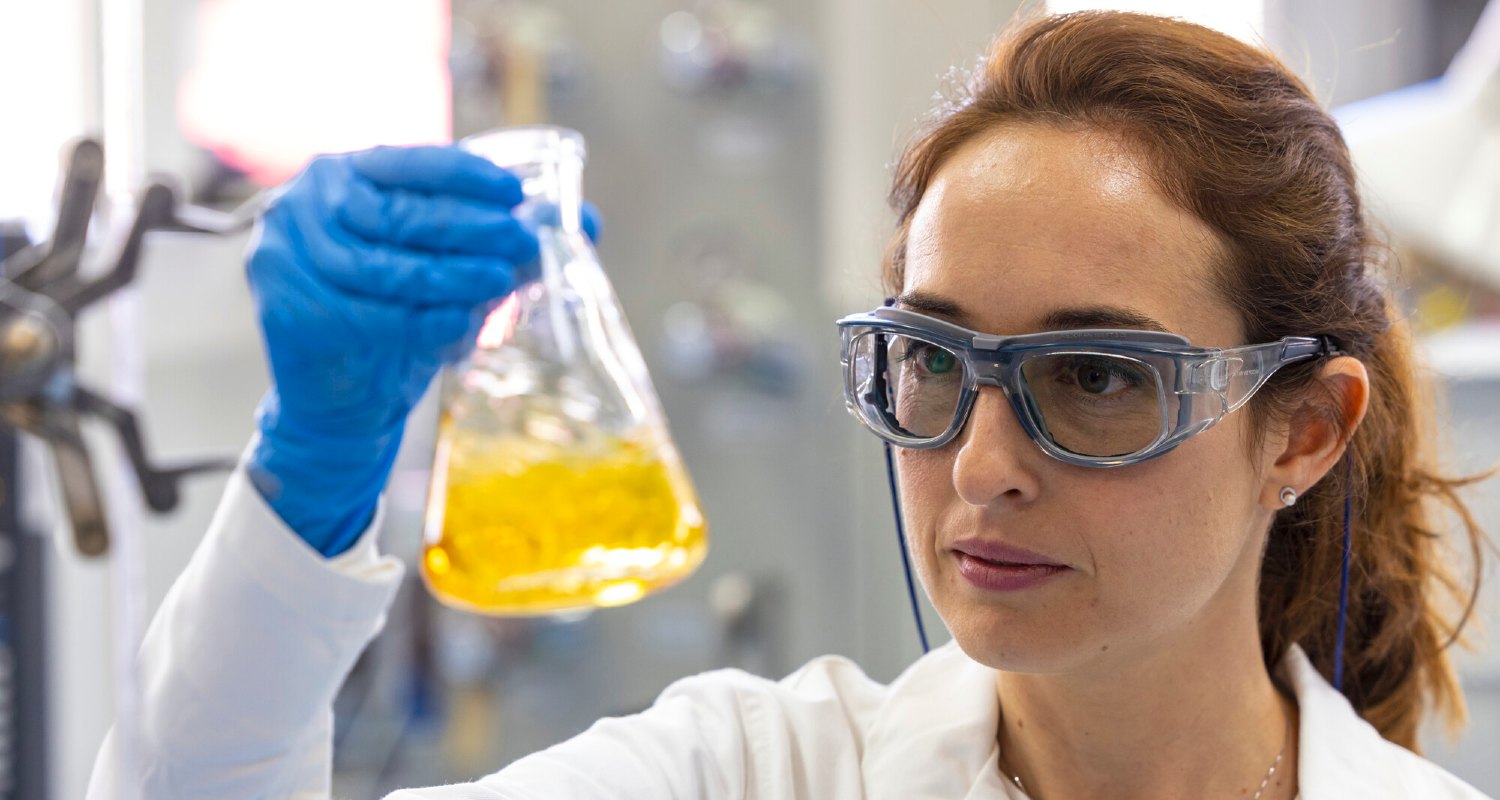

Partnerships to decarbonize mobility
Repsol is developing solutions to fit each sector, to speed up the decarbonization of mobility.
Repsol is building up a network of partnerships with strategic players to accelerate the decarbonization of the mobility sector. The company, which leads the development of sustainable mobility solutions in Spain, has agreements with Iberia, Navantia, Alsa, Uber, Talgo, and Grupo Sesé to develop a multi-energy response that combines renewable fuels, hydrogen, and electrification.
“Complete decarbonization of mobility cannot be achieved with a single technological solution because each sector has different operational requirements and very different features. That is why we have a roadmap that includes all solutions,” said Clara Rey, director of Sustainability.
As it expands its electric charging network in Spain, the company is also converting its industrial complexes into multi-energy hubs with the capacity to manufacture hydrogen and renewable fuels to cover the needs of aviation, light and heavy road transportation, the railroads, and shipping. “We are focusing all technological development on our objective of becoming a net zero emissions company by 2050. But climate neutrality is a challenge of such magnitude that we need the cooperation of all players in the sector to tackle it,” said Rey.
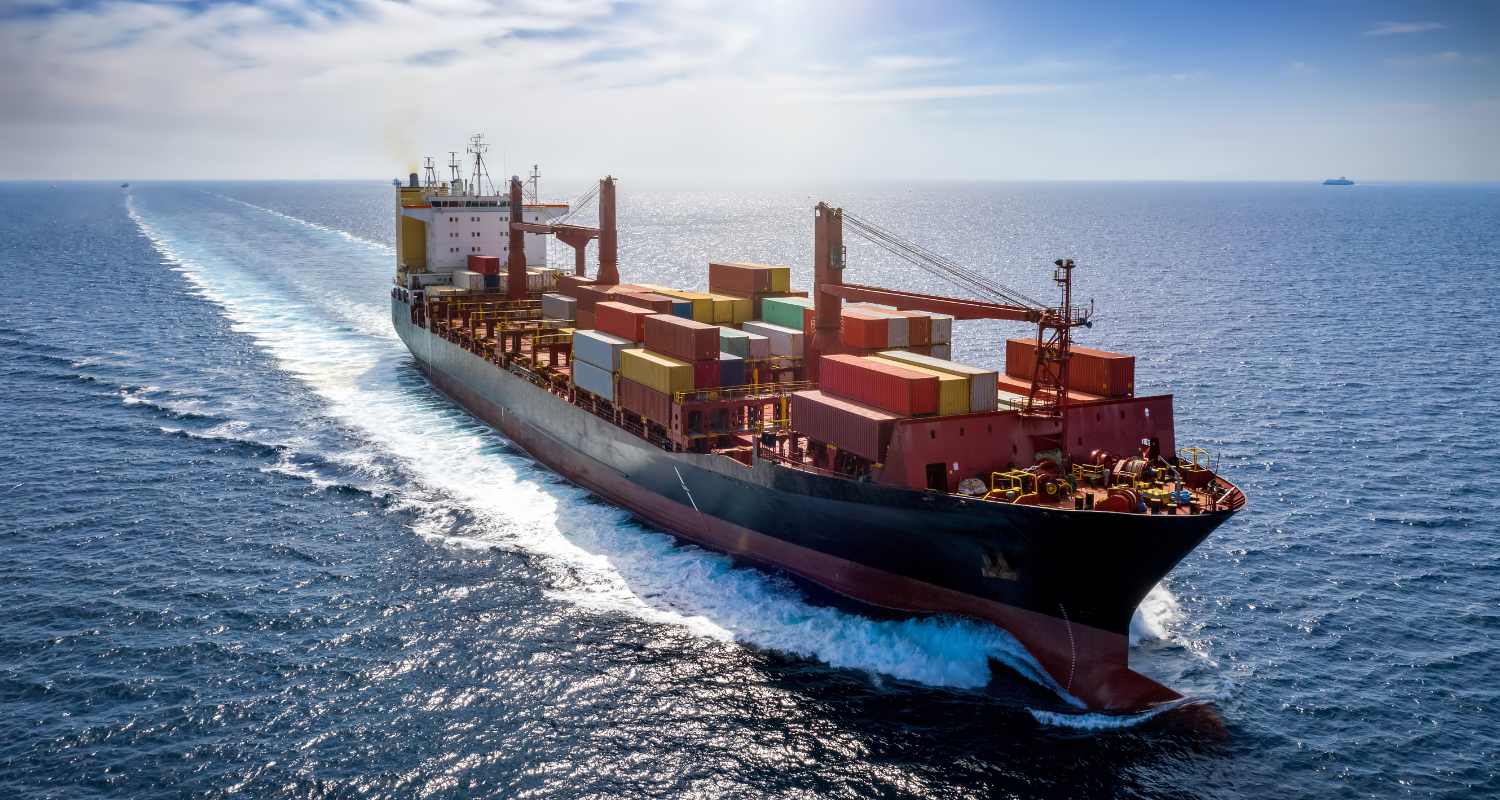
Alternatives for maritime transportation
Repsol and Navantia, a pioneering company in the production of ship propulsion systems, are collaborating on the search for alternatives to decarbonize the maritime sector. Firstly, they are working to use advanced biofuels, a type of renewable fuel “that keeps the benefits of existing propulsion systems but with a reduction of between 80% and 100% in net CO2 emissions”, explained Iñaki Del Pino, director of the Navantia engine factory in Cartagena.
"Complete decarbonization of mobility cannot be achieved with a single technological solution because each sector has different requirements. That is why we have a roadmap that includes all solutions."
Clara Rey
Director of Sustainability
The International Maritime Organization has set a target of reducing naval transport emissions by 50% by 2050. “These are demanding objectives,” said Del Pino, “because it is a segment with a much smaller number of units than other sectors and fewer synergies, and ships have a long operating life.” Advanced biofuels “are going to be the key to that reduction, because the other technologies do not offer a standardized, commercial solution today.”
These fuels are “an immediate resource for reducing mobility emissions,” said Clara Rey, because “they are compatible with today’s engines without the need to make any modifications, and they can be supplied through the extensive distribution and bunkering network that already exists.” Advanced biofuels are produced from organic waste from agriculture, livestock breeding, and the food industry, such as used frying oil, residues from crops and pruning, and solid urban waste.
At its Cartagena refinery, Repsol is building the first advanced biofuels plant in Spain. With an investment of 200 million euros, starting in 2023, it will produce 250,000 tonnes of renewable fuel for transportation per year. The consumption of this fuel will avoid the emission of 900,000 tonnes of CO2 per year. “They will be essential in all sectors, especially those in which it is necessary to travel long distances or transport large tonnages,” said Rey.
Advanced biofuels for heavy transportation (SAF)
Alsa, the leader in road passenger transportation in Spain shares the target of reaching carbon neutrality, and it is also a partner of the energy group. In 2021, the two companies were the pioneers in this country when they tested the use of a type of advanced biofuel called HVO (hydrotreated vegetable oil), in twelve buses belonging to Bilbobus, the Bilbao city bus service, operated by Alsa. They drove around for four months using HVO supplied by the scientists at the Repsol Technology Lab, in a pilot test that led to the reduction of 300 tonnes in CO2 and demonstrated the potential of advanced biofuels for decarbonizing heavy vehicles.
In June 2022, Iberia made its first three long-haul flights -from Madrid to Washington, San Francisco, and Dallas (USA) - using advanced biofuels produced from organic waste at the Petronor refinery. In addition, in 2024, the two companies will begin testing operations with synthetic fuel manufactured at the plant that Repsol will open in Bilbao. With a capacity to produce 2,100 tonnes per year, it will be one of the largest of this type in the world.
“Synthetic fuels or e-fuels are produced using CO2 that we can capture from the atmosphere and hydrogen produced with electricity from renewable sources, so they have zero net emissions. There are no limits to the availability of the raw materials, so it will be an ideal complement to advanced biofuels,” said Rey
Advanced biofuels for heavy transportation
Alsa, the leader in road passenger transportation in Spain shares the target of reaching carbon neutrality, and it is also a partner of the energy group. In 2021, the two companies were the pioneers in this country when they tested the use of a type of advanced biofuel called HVO (hydrotreated vegetable oil), in twelve buses belonging to Bilbobus, the Bilbao city bus service, operated by Alsa. They drove around for four months using HVO supplied by the scientists at the Repsol Technology Lab, in a pilot test that led to the reduction of 300 tonnes in CO2 and demonstrated the potential of advanced biofuels for decarbonizing heavy vehicles.
For freight transportation, Repsol is engaged in a project to promote th.e use of renewable fuels with Grupo Sesé. This logistics operator has a fleet of more than 3,000 vehicles operating in 20 countries. Ten trucks belonging to this company will operate until May 2023 using HVO in a test that, according to prior studies, is expected to lead to a reduction of 90% in net CO2 emissions
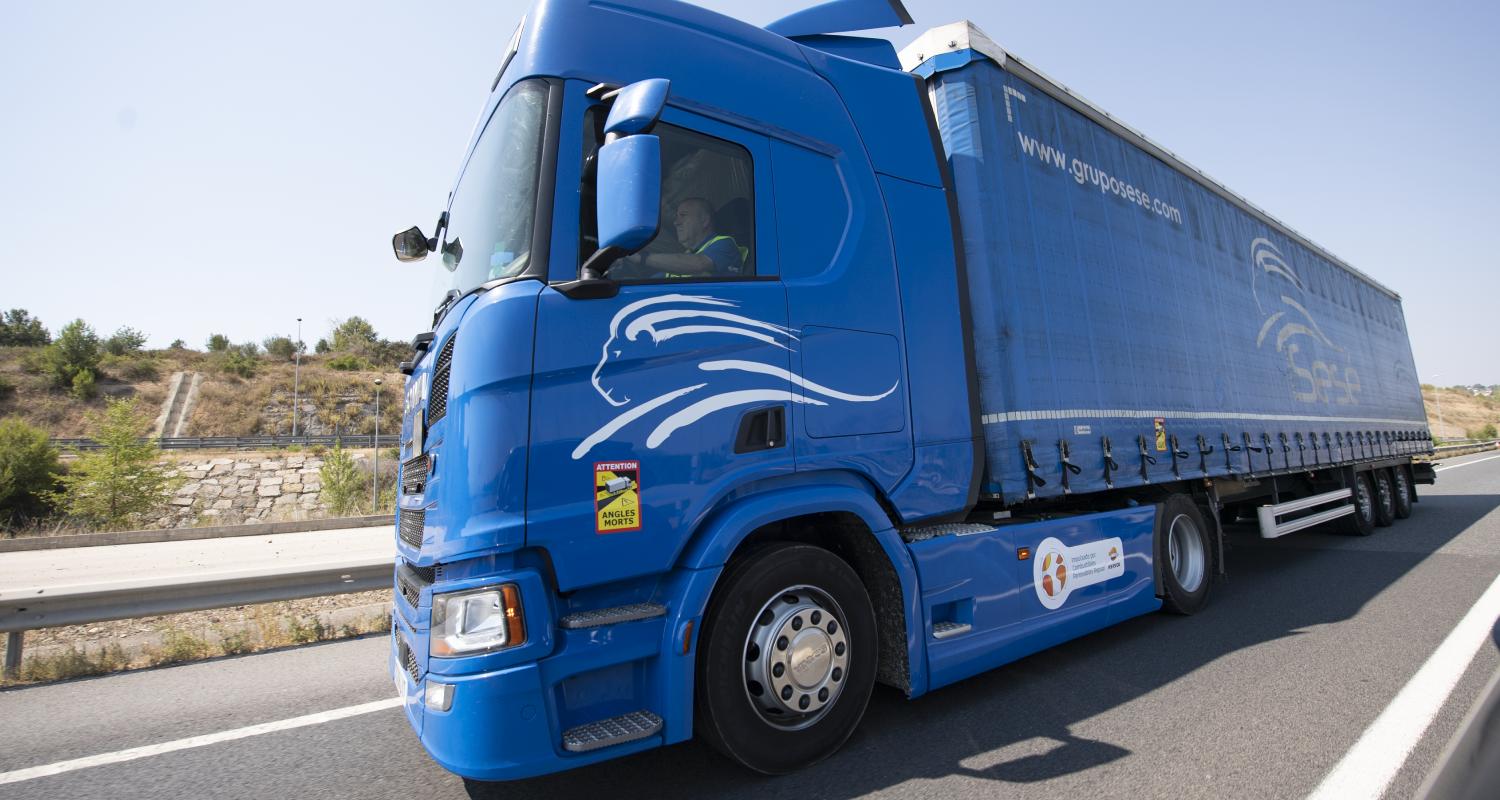
To Héctor Cebrián, Grupo Sesé’s Director of Public Affairs and Decarbonization Projects, “renewable fuels are the most realistic and efficient investment for making progress now on decarbonizing trucking. They have a similar performance to current fuels and the relationship between their cost and a tonne less of CO2 is very competitive". This view is shared by Miguel Ángel Alonso, general manager of the Alsa Maintenance & Procurement Division, for whom their role "can and must be essential. We will gradually add both electric battery-powered vehicles and hydrogen fuel-cell vehicles, but we need complementary solutions for our current fleet, such as renewable fuels.”
The European Commission’s Smart and Sustainable Mobility Strategy has outlined the objective of reducing 90% of the CO2 emitted by transportation by 2050, backing, among other measures, the use of renewable fuels. These fuels are an essential part of Repsol’s strategy, and it will increase its production to two million tonnes by 2030.
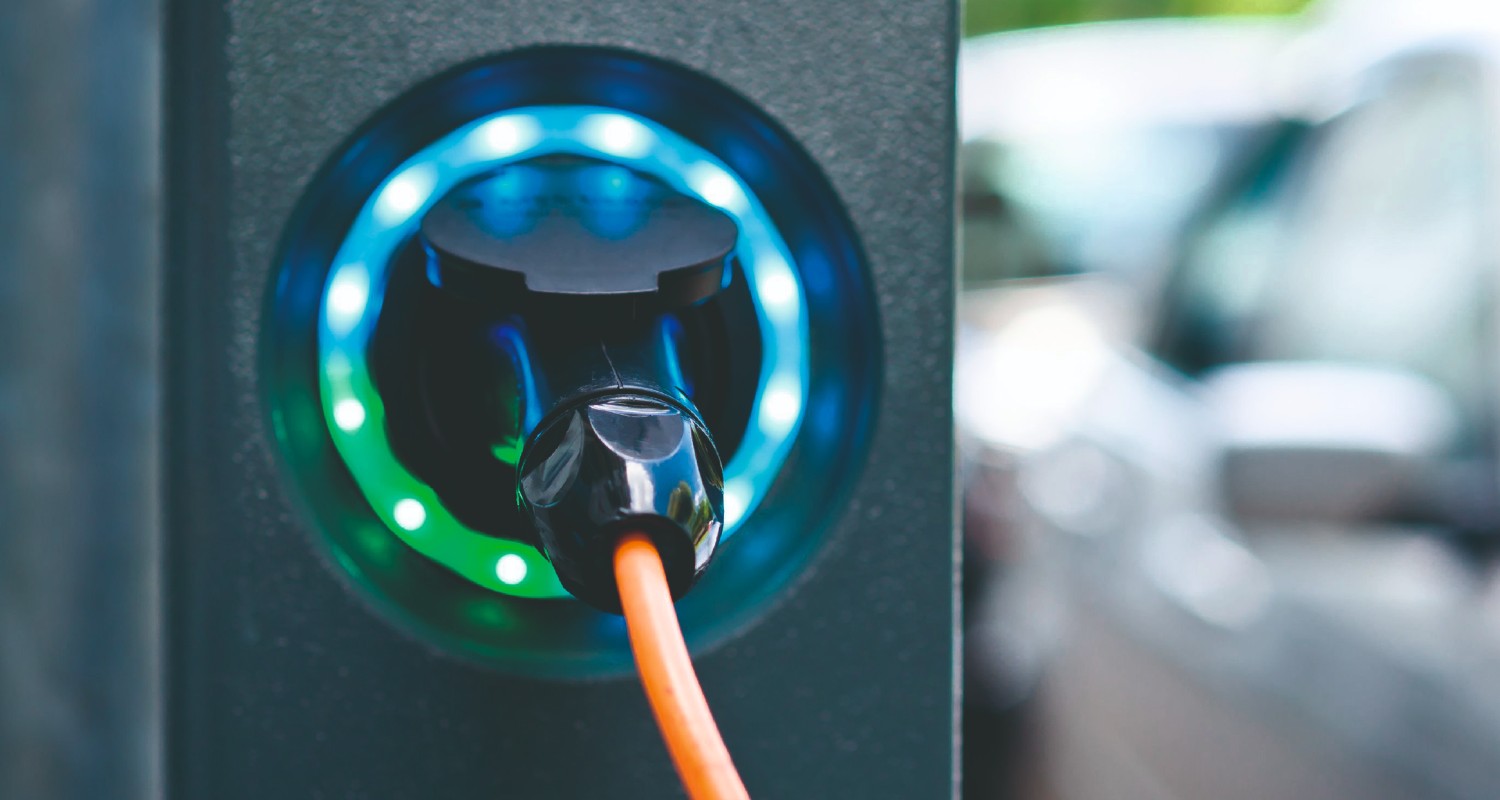
Repsol has become the approved energy supplier of Uber in Spain, for its drivers with electric and plug-in hybrid vehicles.
Expanding electric mobility
To promote electric mobility, Repsol has become the approved energy supplier of Uber in Spain, for its drivers with electric and plug-in hybrid vehicles. Repsol is offering a comprehensive charging solution, both at its public network and by installing charging points for the platform’s drivers, both for its fleets and in private homes. Uber anticipates that all its vehicles in the United States, Canada, and Europe will be electric by the end of this decade.
In addition, Repsol has made agreements to install charging points and supply electricity to the customers of Nissan and Kia, two manufacturers leading the supply of this type of vehicles. In the case of the Korean manufacturer, the energy company has started installing electric vehicle recharging infrastructure at 220 Kia sales points in Spain.
Repsol is also expanding its public-access charging infrastructure, so that by the end of 2022 it will have more than 1,000 charging points. This means that a point will be available every 50 km on the major highways on the Iberian Peninsula. “Electric mobility is a basic part of our multi-energy offering and a formula for the city and shorter distances. For heavy vehicles and long distances, renewable fuels are the best short-term option, and they are going to coexist with electric vehicles,” said Rey.
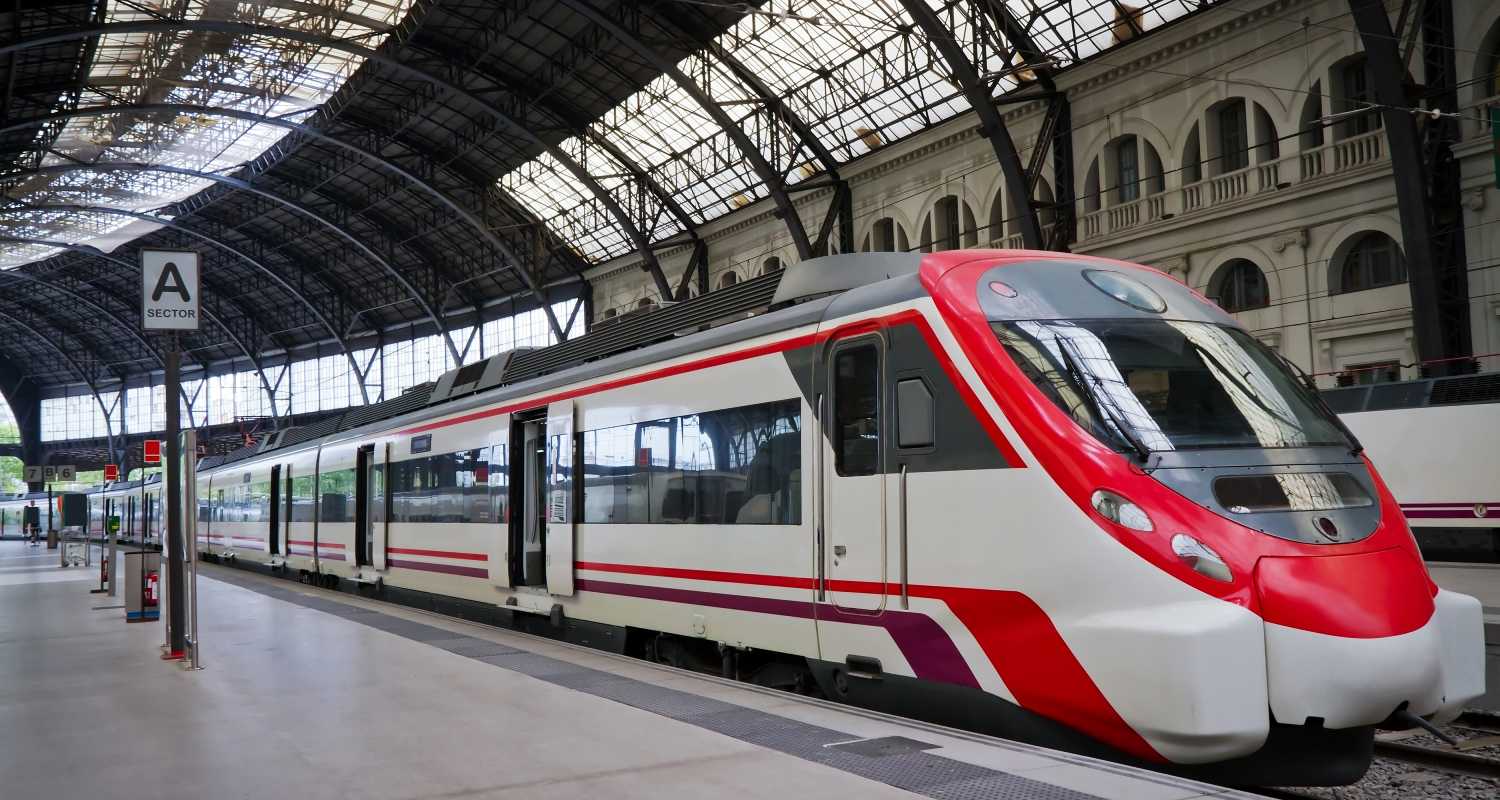
Trains with renewable hydrogen
For the railroads, the multi-energy company has allied itself with Talgo in promoting the use of renewable hydrogen, “which offers an emissions-free alternative for non-electrified routes on which diesel trains now run, because the exhaust gases from hydrogen traction are only water vapor,” explained Emilio García, director of Innovation at Talgo.
The manufacturer has already started testing the prototype for its Vittal One train, which will be the first one developed by a Spanish manufacturer that is propelled by 100% renewable hydrogen. Repsol, which has the goal of leading the production of this sustainable energy vector by 2030 with 1.9 GW equivalent capacity, is supplying the hydrogen for the project.
Talgo has already started testing the prototype for its Vittal One train, which will be propelled by 100% renewable hydrogen. Repsol is supplying the hydrogen for the project.
Talgo, Alsa, Iberia, and Navantia are members of the SHYNE initiative (Spanish Hydrogen Network), the largest multi-sectorial renewable-hydrogen consortium in Spain. This initiative, led by Repsol, is seeking to unite forces to promote this energy vector, which has a key role to play in the decarbonization of the economy. “We have a historic opportunity to become a benchmark country in the production and application to mobility and other sectors of this renewable energy, with its environmental benefits and the creation of many specialized jobs,” said García.
“The world of mobility is going to change completely and the energy used depends on the needs and requirements of each type of transportation. According to whether we want to take a trip across town, transport goods over a long distance, or operate a transatlantic flight, we will use the most appropriate energy: electricity, renewable hydrogen, or renewable fuels,” concluded Rey
Download

